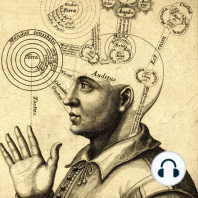117 min listen

The Podcast for Social Research, Episode 32: Another Odicy: On the Two-Hundredth Anniversary of Keats' Odes of 1819
The Podcast for Social Research, Episode 32: Another Odicy: On the Two-Hundredth Anniversary of Keats' Odes of 1819
ratings:
Length:
54 minutes
Released:
Mar 20, 2019
Format:
Podcast episode
Description
In this thirty-second episode of the Podcast for Social Research Core Faculty Member Rebecca Ariel Porte delivers an address for the two-hundredth anniversary of Keats's Odes of 1819, originally recorded as a live broadcast for Montez Press Radio. This lecture considers how to read and what it means to be reading these strange poetic artifacts now--and, too, what it means to be on, to, with, for, and against the Romantic forms of poetry that go under the name of "ode." What is an ode and why write or read one? What are the effects of an ode, its tremors in time, its odicy? What are the odd reverberations of Keats's odicies and their objects--psyche, indolence, melancholy, nightingale, urn, autumn--after two centuries of wear and tear?
Released:
Mar 20, 2019
Format:
Podcast episode
Titles in the series (99)
The Podcast for Social Research, Episode 20: The People's Summit: The twentieth episode of the Podcast for Social Research was recorded live June 9-10 at “The People’s Summit” in Chicago, Illinois! BISR executive director and core faculty Ajay Singh Chaudhary and program coordinator (and future organizing... by The Podcast for Social Research